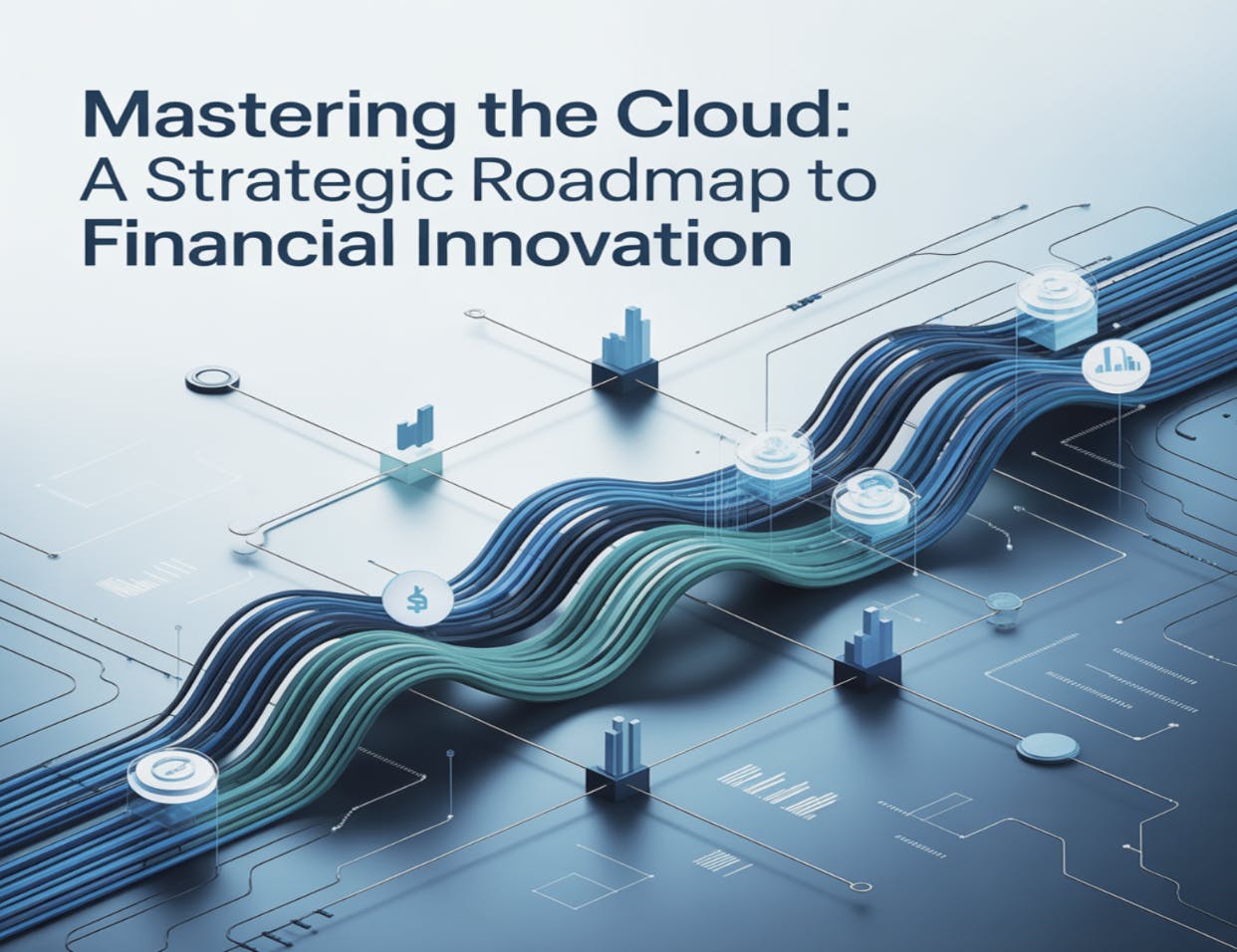In this fast-growing digital world, Technology continues to transform the financial sector rapidly, particularly through integrating
Technical Excellence: Foundation for Transformation
The journey toward financial transformation starts with mastering leading cloud platforms. Familiarity with services like AWS, Azure, and Google Cloud is essential. These platforms offer capabilities for financial institutions: AWS boosts efficiency with cost tracking, Azure improves integration with legacy systems, and Google Cloud excels in analytics. This platform-specific expertise must be supported by strong knowledge of cloud architecture, resilient system design, and multi-cloud strategies that minimize vendor lock-in and ensure regulatory compliance.
DevOps and Security: Streamlining Operations and Safeguarding Data
Efficiency and security go hand in hand. Financial institutions adopting mature DevOps practices experience reduced deployment times and fewer disruptions. DevOps improves system responsiveness and reduces the economic risks of updates and system changes. Security in the cloud era is equally vital. Comprehensive cloud security controls reduce breach incidents and protect financial data while adhering to regulatory standards. Cloud-native security tools provide faster detection and response capabilities, offering a new standard for safeguarding sensitive operations.
The Value of Credentials: Professional Validation
Certifications serve as vital benchmarks of expertise. AWS, Azure, and Google Cloud credentials validate one's ability to design, implement, and manage cloud systems. These are valuable in roles involving system migrations and deploying analytical models. Certifications from groups like the Cloud Security Alliance enhance one's ability to handle sensitive data and navigate complex compliance frameworks.
Financial Systems Fluency: Beyond Cloud Know-How
A solid grasp of enterprise resource planning (ERP) systems is fundamental. Whether SAP S/4HANA’s real-time processing capabilities, Oracle Cloud ERP’s automation of complex processes, or Workday Finance’s seamless integration with HR systems, each platform brings distinct strengths. Professionals must understand not just the functionality of these systems, but also how to optimize and integrate them within cloud infrastructures. Deep ERP knowledge supports improved data flows, real-time reporting, and smoother regulatory compliance.
Financial Intelligence: The Missing Puzzle Piece
Cloud expertise alone is insufficient. True transformation also requires financial acumen. From revenue recognition under modern accounting standards to advanced financial planning enabled by machine learning models, cloud platforms empower faster, more accurate forecasting. They also enhance risk management by supporting extensive simulations and real-time fraud detection. Regulatory compliance becomes easier with automation and built-in audit trails—allowing financial institutions to stay nimble amid changing rules.
FinOps: Optimizing Cloud Economics
FinOps, short for Financial Operations, is rapidly gaining traction as a discipline. It addresses the challenge of controlling cloud spending without compromising performance. FinOps emphasizes accurate forecasting, real-time cost analysis, and department-level accountability. Successful implementation involves creating consumption-based chargeback models that mirror actual usage. This approach drives fiscal discipline and aligns financial strategies with technical needs.
The Imperative of Hands-On Experience
Theory without practice limits success. Professionals who have led cloud migration projects, implemented AI-powered financial analytics, or deployed blockchain-based solutions develop a critical edge. Such experiences allow them to balance innovation with compliance, scalability with security. Equally important is cybersecurity expertise addressing evolving threats while enabling business agility.
Strategic Vision: The Role of Leadership
Technological prowess must be matched with strategic foresight. Leaders who view cloud transformation as a business enabler not just an IT upgrade can better articulate its value across stakeholders. Effective change management, transparent communication, and strong business cases are foundational. Visionary leaders align teams, overcome resistance, and keep cloud initiatives focused on delivering long-term value.
Continuous Learning: Staying Ahead of the Curve
Given the fast-evolving nature of cloud technologies, staying updated is a necessity. Participation in executive training, fintech communities, and industry conferences helps professionals maintain their edge. Mentorship relationships bridge the gap between theory and real-world challenges, while structured learning programs foster cross-functional understanding. These resources ensure that professionals remain agile and future-ready.
In conclusion, Sheetal Anand Tigadikar offers a compelling framework for professionals aiming to master cloud technologies in the financial domain. Her article underscores the need for a holistic technical, economic, and strategic skill set. As enterprises accelerate their digital transformations, those equipped with the right mix of expertise will drive innovation, shape the future of financial services, and lead with confidence in the ever-evolving digital landscape.
This story was authored under HackerNoon’s Business Blogging Program.


